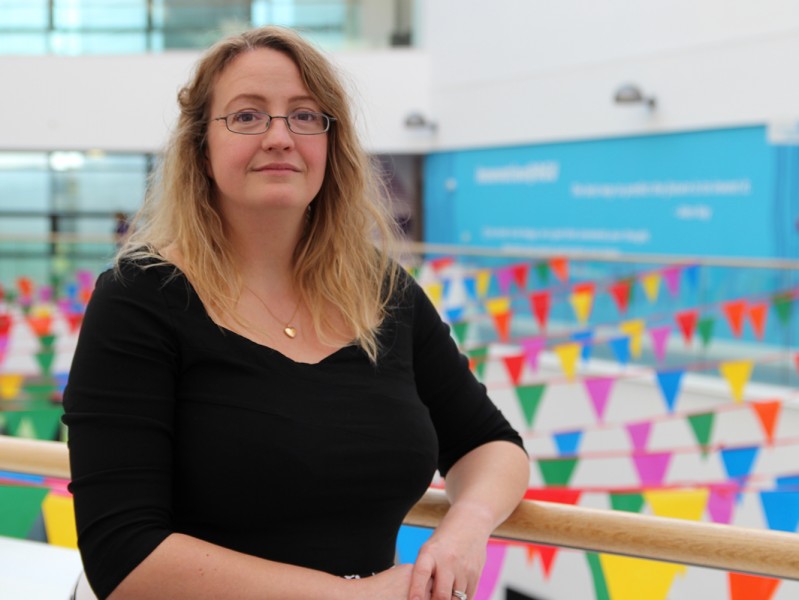Opinion - Building Engineers 4.0
Thursday 29 April 2021

In my role as the Head of Teaching, Learning and Enhancement at the School of Engineering, my goal is to produce high-calibre engineering graduates. Along with thousands of other educators across Scotland, I help create engineering graduates that are fit for purpose and able to take on future challenges. But how do we go about developing engineers for an unknown future, in a fast moving world where we really don’t know what next week’s challenge will be, let alone in the next five years?
According to OPITO’s 2019 Skills Landscape Report, by 2025 there will be approximately 4,500 new people employed in roles that do not currently exist. These new roles will require a different set of skills and competences, which means an emphasis on upskilling the existing workforce.
Engineers can and will solve massive challenges facing the world in the years to come. They possess unique set of skills such as the ability to creatively solve complex problems, data analysis, working innovatively within restrictions, to name a few. These skills feed directly into solving some of the world’s biggest problems such as providing access to clean water, carbon capture and storage, improving urban infrastructure and much more. Engineers will also have a special role to play in the energy transition from oil and gas to renewables.
To do this, engineers may need to step out of the comfort zone of working with other engineers and engage with professionals who have different areas of expertise such as policy development or sustainability. While we may not know the challenges that lie ahead, we know that tomorrow’s engineers will need to be more mentally agile than ever before; they will need to be able to drive change and innovation.
For that they need to incorporate new ways of approaching problems to enhance their existing capabilities and develop skills that are not currently embedded in the engineering curriculum.
Some of these skills include making informed decisions that go beyond specific engineering challenges, applying emotional intelligence in approaching complex problems, actively listening to a variety of stakeholders and using enhanced adaptive leadership skills – these are critical ‘soft skills’ which are, in reality, quite hard to master. In order to develop these skills in the next generation of engineers, professional bodies are calling for radical changes in the engineering curriculum.
Universities are responding to this call by ensuring their courses fit with the demands of professional bodies in the UK and beyond. Degree courses are often accredited by professional bodies to provide quality assurance that graduates are prepared to enter their respective workforces and also become Chartered Engineers. Professional bodies are accountable to the Engineering Council which sets out the requirements of professional engineers and therefore the requirements of accredited courses. Universities also maintain regular connections with industry through consultation events, bringing industry and academia together to solve complex problems.
RGU has developed a Learning and Teaching Framework aimed at creating well-rounded graduates that embody highly developed and valuable personal attributes with professional expertise, skills, judgement and knowledge through ‘Whole Person Education’, ensuring students leave university with the flexibility to meet future challenges head on.
However, like most complex problems there is no simple solution. While graduating from an accredited course puts you well on the way to an excellent career in engineering there also needs to be a strong commitment to personal and professional development.
Beyond the University, employers need to support and promote upskilling of engineers and this is where companies can take bigger strides to develop their workforce. Continuous Professional Development is critical to ensure an organisation’s workforce is equipped to meet their future challenges.
A strong example is the National Manufacturing Institute Scotland which is developing opportunities for the upskilling of engineers across Scotland, not only in leading-edge technological advances but also in the very skills we teach from first year. They go beyond simply offering advanced technical training and enhance key skills such as leadership development, effective team working, unconscious bias training, and active listening. Another example is the New Model Institute for Technology and Engineering who offer an integrated engineering degree using project-based learning and industry partnerships throughout. These examples are indicative of a move toward a more authentic and effective alignment between universities and employers.
Despite these advances, the engineering sector is still facing a massive skills crisis – there is an annual shortfall of around 20,000 engineers. A government study has identified that the global engineering sector needs 186,000 skilled recruits each year until 2024, however the number of students studying engineering at university last year was around 165,000.
This means that we must look after and develop new and existing engineers, support them in being ready to face continually changing challenges in an uncertain landscape. And achieving this will require a concerted effort that goes beyond occasional training sessions and one-off upskilling opportunities. To realise the potential of Industry 4.0 there needs to be a full commitment to developing Engineer 4.0.
